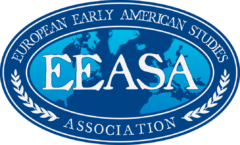Workshop at the University of Exeter
June 2nd-3rd 2023
The concept of emancipation has come under increasing scrutiny in recent years. Historians like Kris Manjapra and critical theorists such as Rinaldo Walcott have exposed the troubling extent to which the emancipation of enslaved people in the Atlantic world was a false dawn; a managed process that ushered in, at best, a partial freedom for Black and African diasporic people who continued to be subjected to various forms of unfreedom and white domination across post-slavery societies. But there exists an underexplored gap between how emancipation was imagined in colonial, metropolitan, imperial, and national contexts, and how it was eventually enacted.
In this interdisciplinary workshop, we seek to bring together intellectual and social historians, political theorists and philosophers, literary and art historians among others to recover eighteenth and nineteenth visions of emancipation and their fraught realities across the revolutionary Atlantic world. Our objects of study will range from programmes for gradual emancipation to the most radical schemes of Black liberation. We hope that by focusing on how actors imagined a society free of slavery, this workshop may bring together scholars from a variety of different fields.
The actors we study will range from reformers suggesting policy, to the formerly enslaved themselves, as they expressed their visions in the form of art, writing, or petitions, to philosophers formulating concrete or wildly utopian plans, to authors and artists envisaging societies free of slavery. That is, we are interested in those who sought to eradicate all forms of servitude as well as those who wished to perpetuate some degree of control over the newly emancipated. In this respect we understand emancipation as a negotiated and contested struggle.
The workshop will prioritise a multiplicity of voices – both in terms of who is studied and in terms of the disciplinary background of who studies them. Our overall approach will be global, focusing on similarities, differences, and mutual influences when it came to imagining emancipation across the Atlantic world. We will ask: how did local or regional contexts shape interpretations of emancipation? How did ideas about emancipation travel across borders? How did proposals for emancipation draw inspiration from those developed in other contexts? How were ideas grown in specific contexts, or adapted and received abroad? Participants are not obliged to take an international approach, but our aim is to bring together researchers in ways that will emphasise and explore trans-Atlantic connections.
We very much welcome papers on the following topics related to the study of emancipation:
- Rebellion and revolt
- Women and Emancipation
- Families and kinship
- Gradual emancipation schemes
- Circulation of ideas and policies
- Unfree labour regimes
- The law and legal mobilizations
- Environmental and spatial politics
- The politics of place
- Land, property and class relations
- The material conditions of emancipation
Abstracts of no more than 250 words should be sent to Ross Carroll (r.carroll@exeter.ac.uk) or Nicolai von Eggers Mariegaard (nicolai.mariegaard@hum.ku.dk) by 1st April 2023.
The workshop will take place at the University of Exeter, 2nd – 3rd June 2023. One or two panels will be online to facilitate the participation of those who may not otherwise be able to attend. If you wish to participate online, please indicate this in your proposal.
This event is part of the research initiative Imagining Emancipation: Projects for Abolishing Slavery in the History of Political Thought, 1750-1888 and is supported by the European Network Fund and the Centre for Political Thought.
Steering Committee: Yesenia Barragan, Sandrine Bergès, Brandon Byrd, Ross Carroll, Gunvor Simonsen, and Nicolai von Eggers Mariegaard.
Contact Email: nicolai.mariegaard@hum.ku.dk
